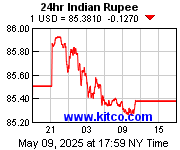A strong track record in real-estate development,
low-cost land bank and higher transparency of operations are positives for the company.
At the offer price, the price-earnings multiple is likely to be about 20 times the company’s expected earnings for FY-09. This is assuming there is no undue delay in its ongoing and planned projects. With a track record of having developed a sizeable area (without having to depend solely on the land bank to discover valuations), we believe the P/E multiple is an acceptable valuation metric in this case.
The company and offerPuravankara is a real-estate developer with a majority of projects executed in Bangalore. The company’s core business lies in the residential segment with diversification into commercial projects. The company plans to raise about Rs 1,000 crore through this IPO. It plans to deploy the proceeds towards acquisition of land in Tamil Nadu and repayment of debt. Post-issue, Puravankara’s market capitalisation at the offer price would be over Rs 10,000 crore. While the company would be competing with bigger (in terms of turnover) players in this market-cap segment, there appears considerable scope for quickly ramping up revenue.
Comfortable pastPuravankara’s track record of executing 14 residential projects and a commercial one, spanning 3.93 million sq ft of developable area, is proof of its execution capability.
Further, it appears that the company has been benefiting from identifying low-cost land, ahead of the property market. That its land cost, as a proportion of total expenditure, has fallen from 24 per cent in 2004 to 6.4 per cent in 2007, reflects that the company has benefited from the boom in land prices over the last couple of years. Such a sharp decline in land cost also indicates that the company has been able to identify land at the right location and at the right time.
Going by its history and the current land holding, the company appears to prefer locations in cities and their peripheries. We believe that this strategy is relatively less risky as the demand for residential and commercial space is likely to remain robust in such areas. Corrections, if any, are also likely to be less sharp compared to smaller towns. Puravankara, therefore, appears to have a lower risk profile than similar-size peers which are aggressively moving to Tier-II and III cities.
Clean structure
Puravankara’s land holding appears to be structurally superior to a number of real-estate companies. The holding pattern also appears less complex and reflects better clarity in ownership. Of the developable area of 116 million sq ft, 14 million sq ft has ongoing projects in them.
Of the total land, 65 per cent is owned by the company; only 6 per cent of the land is on sole development rights where the title lies with the owner and the company gets only the development rights. The above proportion reduces the risk of any stalling of projects by landowners, who retain the title to the land. Even in the case of joint development projects, the company has stated that its economic interest in the same would be in the 60-77.5 per cent range. This percentage appears to be land owner-(who is typically the joint developer)friendly, striking mutual benefit.
The consideration for the above-mentioned land at Rs 795 crore is mostly paid, about 11 per cent remains outstanding.
Given that it has locked into land costs, the company may benefit from appreciation, as the land bank, going by its size, may last six-eight years.
Strength in joint ventureIn 2005, Puravankara entered into a joint venture with a subsidiary of the Singapore-based Keppel Land, in which the Singapore Government’s investment arm, Temasek Holdings, has an indirect holding. Keppel Land has a presence across Singapore, China, Indonesia and Vietnam. While this joint venture is likely to improve the company’s execution capability, Puravankara has also been cautious in not exposing more than 7 per cent of its total developable area through this strategy. This venture may give Puravankara a presence in the overseas markets as well. Besides, the company has an ongoing project in Sri Lanka and an office in West Asia. Nevertheless, the venture has its risks, as the agreement does not preclude the venture partners from competing with each other.
The spreadWith Bangalore being Puravankara’s strong point, the company continues to have 72 per cent of its developable area in this city. The company has also cautiously taken smaller exposure to land in Kochi and Chennai, Mysore and Hyderabad among other locations.
The demand from the middle- and upper middle-income group, to which Puravankara primarily caters to, is fairly robust in the above locations. Any correction in the now infrastructure constrained Bangalore is unlikely to dent the company’s profitability margins much, as the land is spread across the city and its outer limits. Further, the volume in the above income group segment is likely to provide some insulation to margins.
Strong financialsPuravankara’s revenue has grown at an annual rate of 75 per cent over the past three years, to Rs 417 crore in 2006-07. Operating profit margin at 32 per cent have remained stable over the past four years.
While there was scope for improvement in OPMs, with the land cost having reduced over the years, increasing construction costs appears to have prevented further growth. The margins are nevertheless above industry average.
The company is heavily geared and has a debt-equity ratio of over three. However, the proceeds of the issue are likely to bring this ratio to a comfortable level of less than 1.
DSP Merrill Lynch and Citigroup are the book running lead managers. The offer is open from July 31 to August 03.
![[Most Recent Quotes from www.kitco.com]](http://www.kitconet.com/images/quotes_7a.gif)




No comments:
Post a Comment